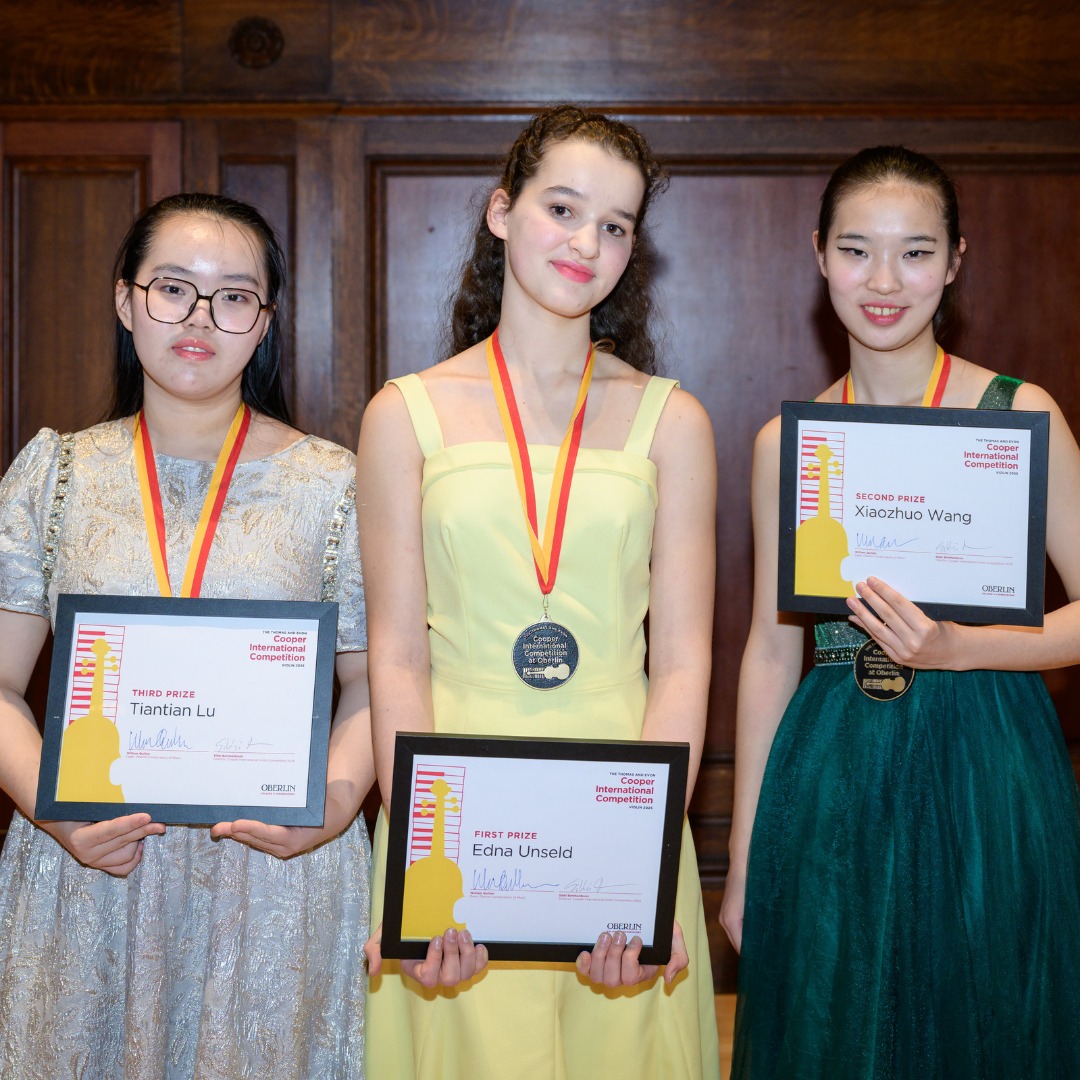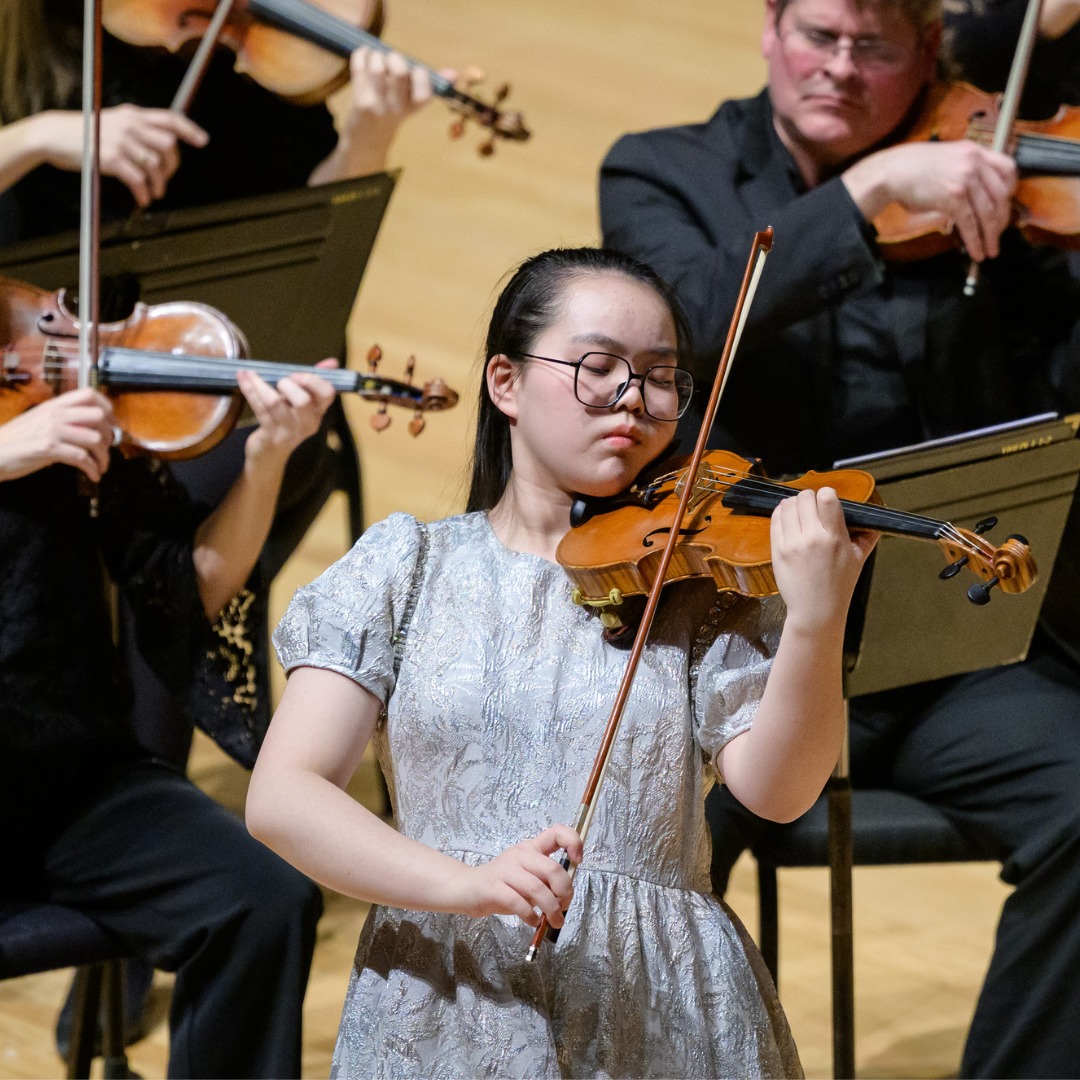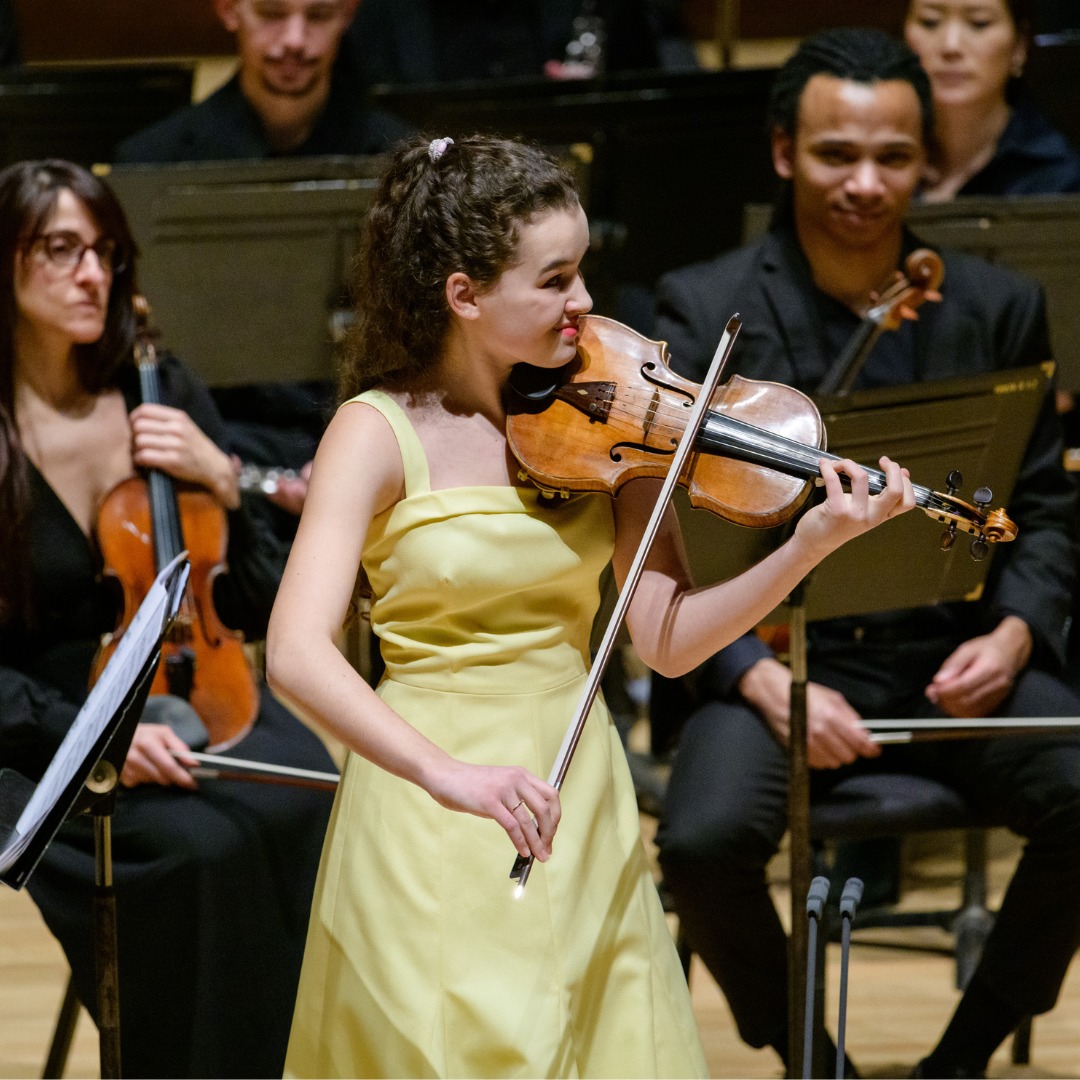by Stephanie Manning

The final three violinists, narrowed down from an initial field of nineteen, presented concertos by Brahms (once) and Tchaikovsky (twice) — coincidentally, the same program from 2022, the last time the competition was held for violin.
Joined by the ProMusica Chamber Orchestra and conductor Norman Huynh, this year’s finalists delivered an impressive evening of performances on January 10.
First up was Julia Xiaozhou Wang (17, Nanjing, China) with a relatively straightforward interpretation of Brahms’ Concerto in D, Op. 77. After the lengthy introduction, played sensitively by ProMusica, she attacked the opening with intensity, before smoothly lightening things up in her high register.
At times, Wang sounded somewhat hesitant or nervous, which cast a shadow over what was otherwise a passionate engagement with the music.

The Brahms concerto requires quite a high level of playing from the orchestra, and ProMusica absolutely stepped up. The woodwind chorale that opens the second movement, featuring an elegant oboe solo from Donna Conaty, was a real joy.
The confident orchestral performances continued with Tchaikovsky’s Concerto in D, Op. 35, the work of choice for the next two soloists. ProMusica created a fittingly regal sound in both renditions, once again highlighting the principal woodwind players in the middle movement.

Lu shone the brightest in the piece’s more delicate moments, as in the shimmering arpeggios of the first-movement cadenza and the lyrical lines of the Canzonetta: Andante, where she carefully shaped the resolution of each trill. Her efforts earned her Third Prize.
Edna Unseld (13, Zurich, Switzerland) truly had the last word. Calm and collected, she delivered a beautifully free-spirited Tchaikovsky, a nice balance to the other performance of the concerto that evening.

After a bit of an unsteady beginning to the second movement, she regained composure quickly, segueing into a flying finale. Her brisk tempos sometimes made the ensemble shaky as she transitioned in and out of solos — but the overall effect was exhilarating. It was no surprise to see her handed First Prize at the end of the evening, an exciting omen of opportunities to come.
Published on ClevelandClassical.com January 14, 2025.
Click here for a printable copy of this article


